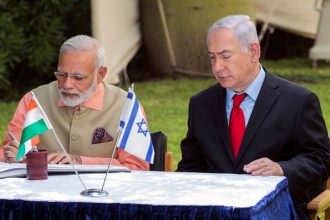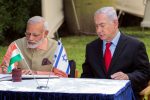In a deeply unsettling turn of events, Israel and Iran have descended into a dangerous cycle of military retaliation, threatening to pull the Middle East into a wider war. Behind the headlines and official statements lies a human story of fear, loss, and uncertainty.
On Friday, Israel launched a sweeping military strike deep inside Iran, targeting nuclear and military infrastructure. Using warplanes and drones allegedly smuggled into the country, Israel aimed at key facilities in cities like Natanz and Isfahan, killing several top Iranian generals and nuclear scientists in the process. Israeli Prime Minister Benjamin Netanyahu called it a preemptive move to stop Iran from getting closer to a nuclear bomb — a claim contested by international observers and the U.S., who saw no imminent threat at the time.
Iran’s response was swift and deadly. As night fell, waves of ballistic missiles lit up the skies over Jerusalem and Tel Aviv. Residents were jolted from their homes by sirens and explosions. Families scrambled into bomb shelters. In the city of Rishon Lezion, a missile hit a residential area, killing two civilians and injuring 19 others. A Tel Aviv hospital reported treating seven wounded after another barrage struck the city.
Inside Iran, the aftermath was no less grim. Tehran’s skies echoed with the roar of air defenses, and reports of damage near the Mehrabad International Airport sent fresh waves of panic through the capital. Iran’s Supreme Leader Ayatollah Ali Khamenei vowed retribution, calling the Israeli strike “a great crime.” The Iranian government reported 78 killed and over 320 injured.
Israel, meanwhile, says it is just getting started. Military spokespeople confirmed they hit over 100 targets using some 200 aircraft, supported by an intelligence operation months in the making. Among the dead are Iran’s top military leaders — a blow that could reshape Tehran’s strategic calculus.
While the world watches with concern, everyday people on both sides are paying the highest price. Children sleep in shelters. Parents search for missing loved ones in bombed-out homes. Civilians — not soldiers — bear the brunt of this geopolitical chess game.
Calls for de-escalation have come from every corner of the globe. The United Nations convened an emergency session at Iran’s request, while the U.S., having warned against the Israeli strike earlier, now urges both nations to avoid dragging others into the conflict.
This isn’t just a clash of nations — it’s a moment that could define the future of the region. Behind every statistic is a shattered family, a grieving mother, a frightened child. No matter the political aims, the human cost is already far too high.
The world must act — not just to broker peace, but to remind these powerful players that every missile launched destroys more than just concrete. It shatters lives, communities, and hope.








